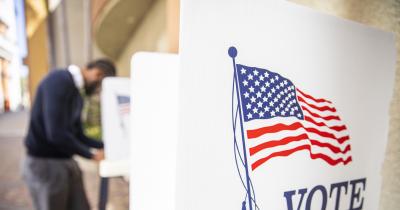
Black and Brown Communities Leading on Small-Donor Democracy
Congress must include small-donor matching in final For the People package

While democracy champions in Congress work to put together a compromise version of the For the People Act that can pass the U.S. Senate, the latest reports indicate that inclusion of essential provisions to empower small donors hangs in the balance.
A truly transformative pro-democracy, racial justice legislative package must include provisions to put regular voters, not big-money donors, at the center of our elections.
Two new case studies by Demos and our partners Washington CAN and Common Cause Maryland show why a truly transformative pro-democracy, racial justice legislative package that shifts power to Black and brown communities must include provisions to put regular voters, not big-money donors, at the center of our elections.
In Seattle, Washington CAN worked to make the city’s innovative “democracy voucher” program more inclusive, and then put it into practice.
In Baltimore, Maryland Common Cause worked with Black elected leaders to enact a system that would give voters the power to push back on big-money developers in a majority-Black city.
Fighting big money in politics is often narrowly framed as a “good governance” concern that’s just about fighting corruption. This is largely because of the Supreme Court’s misguided approach to the issue.
Small-donor empowerment policies certainly fight corruption by making candidates and officeholders less dependent on a narrow handful of big-money donors. But they do more than that.
Such policies tear down barriers to entry and open up pathways to candidates who lack access to wealthy donors (or their own hefty bank accounts). By incentivizing elected leaders to reach out to ordinary citizens in every ZIP code instead of dialing for dollars to the richest 1 percent, the small-donor provisions in the For the People act shift power from the money to the many.
In the U.S., centuries of race-based economic exclusion has created stark racial wealth disparities. As a result, the donor class is largely white, and this shapes our politics in countless ways. When we craft the rules for funding public election campaigns, we are really answering one key question: Will we allow a wealthy, white elite to translate their racialized economic might directly into political power, or will we live up to America’s one-person, one-vote values?
This is why Black and brown advocates, organizers, community leaders, and elected officials are leading the way on small-donor empowerment policies. By investing their resources and expertise, they demonstrate that building a democracy where the strength of our voices doesn’t depend upon the size of our wallets is critical in the fight for racial equity and economic justice.



